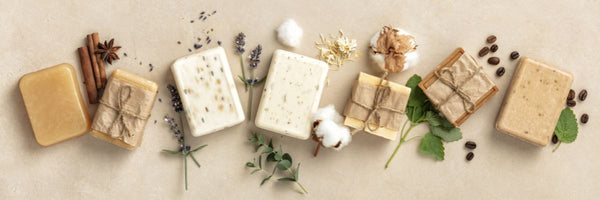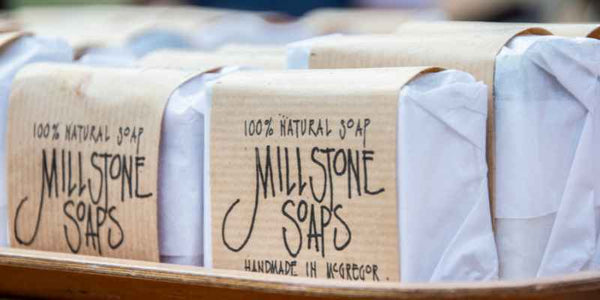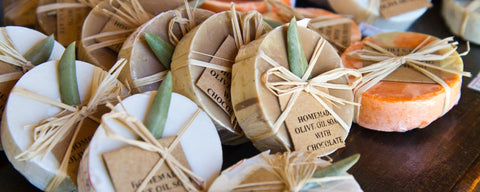
Step into the world of artisanal bar soaps and prepare to be captivated by the fascinating journey that lies behind each lather. From carefully selected ingredients to meticulously crafted packaging, the process of creating these handmade gems is a labor of love that can truly be felt in every sudsy moment. In this intriguing exploration, we will delve into the artistry and craftsmanship that goes into producing these luxurious bars, uncovering the secrets that make them stand out in a sea of mass-produced alternatives. Discover the meticulous attention to detail that goes into sourcing the finest natural ingredients, the traditional techniques employed to create unique scents and textures, and the mindful packaging choices that reflect a commitment to sustainability. Join us on this aromatic adventure and prepare to elevate your bathing experience to a whole new level with the art of artisanal bar soaps.
The Rise of Artisanal Soap Making
In recent years, there has been a resurgence in the popularity of artisanal bar soaps. Consumers are increasingly seeking out products that are made with care, using high-quality ingredients and traditional techniques. Artisanal soap makers have gained a dedicated following for their commitment to creating products that are not only effective but also a sensory delight. The rise of social media and e-commerce platforms has also played a significant role in the visibility of these small-scale soap makers, allowing them to reach customers around the world and share their passion for their craft.
Artisanal soap making has a rich history that dates back centuries. Before the advent of commercial soap production, people would make their own soap using simple ingredients like animal fats and lye. Over time, this basic recipe evolved, and artisans began experimenting with different oils, butters, and botanicals to create bars that were not only cleansing but also nourishing for the skin. The art of soap making was passed down through generations, with each soap maker adding their own unique twist to the process.
Ingredients Used in Artisanal Bar Soaps
One of the key factors that sets artisanal bar soaps apart from their mass-produced counterparts is the quality of the ingredients used. Artisanal soap makers take great care in sourcing the finest natural ingredients, often opting for organic, sustainably harvested, and fair-trade options. These ingredients not only benefit the skin but also contribute to the overall sensory experience of using the soap.
Common ingredients found in artisanal bar soaps include nourishing oils like olive oil, coconut oil, and shea butter. These oils are chosen for their moisturizing properties and ability to create a rich, creamy lather. Botanicals such as lavender, chamomile, and calendula are often added for their soothing and calming effects on the skin. Essential oils are used to create unique scents that range from uplifting citrus blends to calming floral notes. Natural colorants like clays, herbs, and spices are also used to give the soaps their vibrant hues.

The Soap Making Process
Artisanal soap making is a labor-intensive process that requires precision and patience. The soap making process typically involves three main steps: creating the soap base, adding botanicals and essential oils, and molding and curing the soap.
To create the soap base, the soap maker combines oils, water, and lye in carefully measured proportions. This mixture is then heated and stirred until it reaches a specific temperature, known as the "trace." At this point, the soap maker can add additional ingredients like botanicals, essential oils, and colorants.
Once the soap base is ready, it is poured into molds and left to cure for several weeks. During this time, the soap undergoes a chemical reaction known as saponification, which transforms the oils and lye into soap. The curing process allows the soap to harden and mellow, resulting in a longer-lasting bar that produces a luxurious lather.
Different Types of Artisanal Bar Soaps
Artisanal bar soaps come in a wide variety of types and formulations, each designed to cater to different skin types and preferences. Whether you have dry, oily, sensitive, or combination skin, there is an artisanal bar soap out there for you.
For those with dry or sensitive skin, moisturizing soaps made with ingredients like shea butter, cocoa butter, and avocado oil are a great choice. These soaps provide gentle cleansing while nourishing and hydrating the skin. If you have oily or acne-prone skin, look for soaps that contain ingredients like tea tree oil, activated charcoal, and clay. These ingredients help to balance oil production, unclog pores, and clarify the skin.
If you prefer a little indulgence in your bathing routine, there are artisanal soaps available that are infused with luxurious ingredients like honey, goat milk, and silk. These soaps not only provide a decadent experience but also offer additional benefits for the skin, such as increased hydration and improved texture.
Benefits of Using Artisanal Bar Soaps
Using artisanal bar soaps offers a multitude of benefits for both your skin and the environment. Unlike mass-produced soaps, which often contain synthetic ingredients and harsh chemicals, artisanal bar soaps are made with natural, skin-friendly ingredients. These soaps are gentle on the skin and do not strip away the skin's natural oils, leaving it feeling clean, soft, and moisturized.
In addition to being gentle on the skin, artisanal bar soaps are also better for the environment. Many mass-produced soaps come packaged in single-use plastic containers, contributing to the global plastic waste problem. Artisanal soap makers, on the other hand, are mindful of their packaging choices and often opt for eco-friendly alternatives. From recyclable paper wrappers to reusable tins, these packaging options reflect a commitment to sustainability and reduce the environmental impact of the products.

Packaging and Branding of Artisanal Bar Soaps
The packaging and branding of artisanal bar soaps play a crucial role in attracting customers and conveying the values of the soap maker. Artisanal soap makers often take great care in designing packaging that is not only visually appealing but also reflects the natural and handmade nature of their products.
Many artisanal bar soaps come wrapped in beautiful, eco-friendly papers that showcase the colors and textures of the soap. These papers are often adorned with botanical illustrations or handwritten labels, adding to the overall aesthetic appeal. Some soap makers even go the extra mile by using recycled or upcycled materials for their packaging, further aligning their brand with sustainability.
The branding of artisanal bar soaps is also an important aspect of creating a unique identity in a competitive market. Artisanal soap makers often have a compelling story behind their brand, which they communicate through their packaging and marketing materials. Whether it's a family tradition passed down through generations or a commitment to supporting local communities, these stories add depth and authenticity to the brand.

Supporting Local Artisans and Sustainable Practices
Choosing to use artisanal bar soaps not only benefits your skin but also supports local artisans and sustainable practices. By purchasing from small-scale soap makers, you are directly contributing to their livelihoods and helping to keep traditional soap making alive.
Artisanal soap makers often source their ingredients from local farmers and suppliers, further supporting the local economy. They also prioritize sustainable practices, such as using renewable energy, reducing waste, and minimizing their carbon footprint. By supporting these artisans, you are helping to create a more sustainable and ethical beauty industry.
How to Choose the Right Artisanal Bar Soap for Your Skin Type
With so many options available, choosing the right artisanal bar soap for your skin type can seem overwhelming. However, there are a few key factors to consider that can help guide your decision.
Firstly, identify your skin type. Do you have dry, oily, sensitive, or combination skin? Knowing your skin type will help you narrow down the options and choose a soap that addresses your specific needs.
Next, consider any specific skin concerns you may have. For example, if you struggle with acne, look for soaps that contain ingredients like tea tree oil or activated charcoal. If you have sensitive skin, opt for gentle and fragrance-free soaps.
Lastly, read reviews and testimonials from other customers. This can provide valuable insights into the performance and effectiveness of the soap. Look for reviews from individuals with similar skin types and concerns to get a better idea of how the soap might work for you.
Final Thoughts:
The journey of artisanal bar soaps is a captivating one, filled with passion, creativity, and dedication. From the careful selection of natural ingredients to the traditional techniques employed in the soap making process, every aspect of creating these luxurious bars reflects a commitment to quality and craftsmanship. The artistry and attention to detail that go into sourcing, formulating, and packaging these soaps elevate them to a whole new level. By choosing artisanal bar soaps, you not only enhance your bathing experience but also support local artisans and sustainable practices. So why settle for mass-produced alternatives when you can indulge in the beauty and art of artisanal bar soaps? Treat yourself to a truly luxurious bathing experience and discover the magic that lies within each bar.



